
Only 85km from Cape Town is Dassenheuwel Farm Stay & Cottages, between the towns of Malmesbury (to the west) Riebeek-Kasteel (to the north), and Hermon (to the east).
A fourth generation of the Lesch family lives on the farm, Dassenheuwel.
Owners Kobus and Lida make a formidable team and ensure all is running like clockwork on this working farm. Kobus, assisted by his son Pieter, manages the farming activities, and Lida, a pharmacist, takes care of the Farm Stay & Cottages.
FARMING ACTIVITIES
Dassenheuwel produces wheat and canola commercially, while it grows lupine and oats on a crop-rotation basis to use as fodder. Livestock includes a herd of Sussex cattle, and a flock of Dohne Merino sheep, a multipurpose breed. Drifts of feral pigs and troops of baboons are the major destroyers of crops, and caracal is responsible for killing lambs. Kobus tells us that the natural fauna in this area is Renosterveld, and the mountains in the region, with the local, natural habitat, are home to more than 120 bird species on the farm.
SMALL GAME
The blue crane (bloukraanvoël) makes a regular appearance, as do the Verreaux’s eagle (witkruisarend). Guests may be fortunate to see small antelope, such as steenbok and duiker on the farm.
ACCOMMODATION
Lida tells Farmer’s Weekly that the most important reason people book into Dassenheuwel is for the peace, tranquillity and fresh air it offers.
This story is from the {{IssueName}} edition of {{MagazineName}}.
Start your 7-day Magzter GOLD free trial to access thousands of curated premium stories, and 9,000+ magazines and newspapers.
Already a subscriber ? Sign In
This story is from the {{IssueName}} edition of {{MagazineName}}.
Start your 7-day Magzter GOLD free trial to access thousands of curated premium stories, and 9,000+ magazines and newspapers.
Already a subscriber? Sign In

Agripreneur wins top award for butternut coffee
Bloemfontein-based agripreneur Chantelle de Bruyn has achieved global recognition.
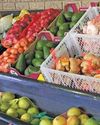
Final fresh produce inquiry pins low level of transformation on farming environment
The Competition Commission released its final report on the Fresh Produce Market Inquiry in mid-January, maintaining that transformation in the industry was being impeded by a lack of support for emerging farmers.

Illegal fishing in Australia reveals market gap for farmed sea cucumber
Illegal fishing practices in Australia have revealed a large market opportunity for sea cucumber farming.

An introduction to the Ford Ranger Tremor
In December 2024, the CAR magazine team received the Ford Ranger Tremor to accompany them through the festive season and into the new year. Oliver Keohane looks at what the Tremor is all about.
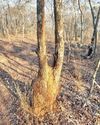
A farmer's experience with bush encroachment
Farmer David Addenbrooke has worked in the Zimbabwean beef industry for around four decades. Here, he relates his experience with bush encroachment and offers farmers some advice on battling this scourge.
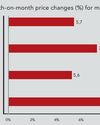
Good rains boost SA's summer grain crop prospects
This week, Absa AgriBusiness analyses several market dynamics and shares its expectations for local grain and oilseed prices over the coming months.
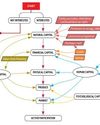
A self-help tool for getting young people engaged in agriculture
The active engagement of the youth in agriculture is pivotal to the sustainability and growth of the sector. Empowering them with the necessary support is key to nurturing future farmers who are equipped to overcome future challenges like the effects of climate change.Dr Primrose Madende, researcher at the Department of Agricultural Economics at the University of the Free State
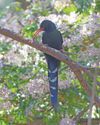
Rallying to the cackle of this raucous bird
The gregarious and territorial Green Wood-hoopoe, also known as the Red-billed Wood-hoopoe, is extremely vocal and is often heard before it is seen. And for very good reason,

SA coffee lovers can expect price increase
South African coffee prices are expected to spike sharply in the foreseeable future because of failed crops in the country’s main importing countries: Brazil and Vietnam.
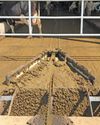
Paving the way for a greener dairy industry
The dairy industry is often criticised for its environmental impact, but a new innovation called DESTiny aims to empower farmers to take control of their carbon footprints. Riana Reinecke, the tool's developer, explained to Glenneis Kriel how it works and how farmers can benefit from it.